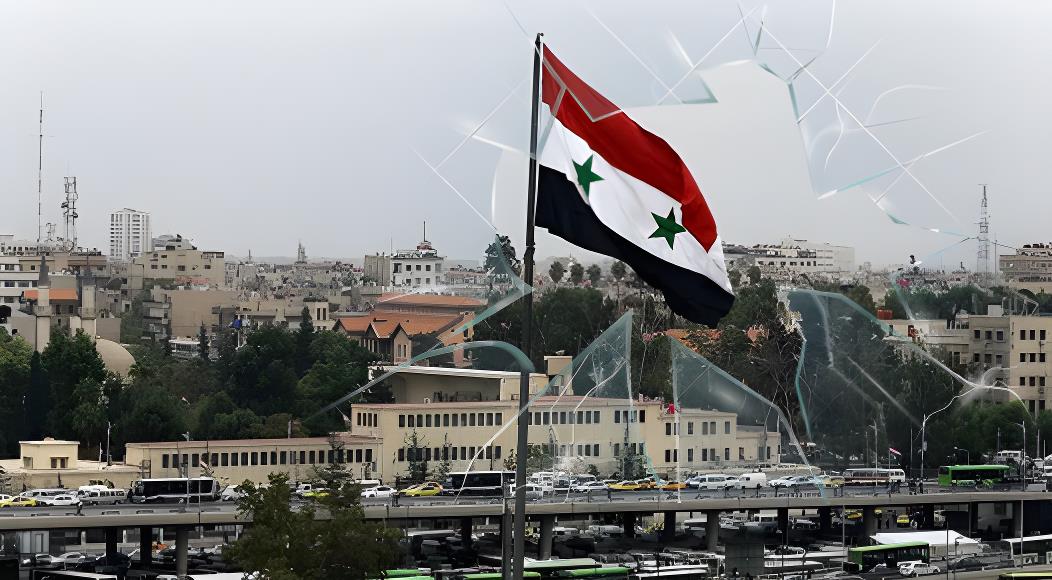
What Syria's Political Tantrum Reveals About Future Of South Caucasus?
On December 8, the Syrian army command announced the collapse of Bashar al-Assad's authoritarian rule, marking a seismic turning point for the Middle East. This development follows a swift rebel offensive that culminated in the capture of Damascus, where jubilant crowds filled the streets chanting "Freedom" after decades of Assad family domination. The fall of Assad's regime not only reshapes the Syrian political landscape but also sends ripples across neighboring regions, sparking fears of instability and geopolitical recalibrations.
As the Middle East braces for the aftermath of Assad's downfall, questions arise about its implications for the South Caucasus-a region bordering key players in Syria, including Russia, Iran, and Türkiye. With these neighbors supporting the 3+3 format to foster cooperation in the South Caucasus, parallels with the Astana format on Syria become evident. Yet, the shifting dynamics in Syria raise concerns about the durability of such frameworks and the potential challenges for regional sovereignty in the South Caucasus format includes the three South Caucasus nations-Azerbaijan, Armenia, and Georgia-and their larger neighbors, Russia, Türkiye, and Iran. While ostensibly aimed at fostering stability and reducing geopolitical tensions, the reality of its implementation reveals varied levels of enthusiasm and engagement among the participants.
Each of the regional actor has clear and distinct ambitions. Türkiye is determined to contain the Kurdish military presence, prevent the establishment of any Kurdish political entity along its southern border, and ensure the return of Syrian refugees. Iran is focused on preserving the critical land routes that connect it to Syria and Lebanon for the transfer of arms to its allies and proxies, while also reinforcing the centralized state in Damascus. Meanwhile, Russia has declared its intention to resolve the Syrian conflict, yet it lacks the necessary leverage to compel President Assad to accept any compromises. In this complex landscape, Assad strategically navigates the interests of these three powerful actors to solidify his authority.
Perspectives on the 3+3 Format from South Caucasus nations:
-
Azerbaijan has been a strong advocate for the
3+3 initiative, viewing it as a pragmatic platform to address
regional challenges collaboratively. For Baku, the format
represents an opportunity to participate in multilateral diplomacy
while promoting peace and connectivity within the South
Caucasus.
Armenia , on the other hand, appears less
enthusiastic. Yerevan's involvement seems to stem from geopolitical
necessity, particularly its dependence on Tehran, rather than
genuine alignment with the format's goals. While it hesitates to
deepen ties with Türkiye in other contexts, the 3+3 framework
provides a controlled setting for limited interaction.
Georgia remains the notable absentee,
declining participation due to its strained relations with
Russia the ongoing protests in the country and the turmoil in
the government, Tbilisi is undoubtedly not yet considering the
urgency of this issue. Despite this, Tbilisi maintains functional
relations with other participants, demonstrating a pragmatic
approach to regional diplomacy.
The establishment of a 3+3 regional format in the South Caucasus resembles the Astana Process in Syria. Currently, this format has successfully prevented any spillover effects in the South Caucasus. The Astana process in Syria initially strengthened coordination between Russia, Türkiye, and Iran, allowing them to manage their overlapping interests and contain conflicts. However, as agreements fracture and tensions rise, the limits of such formats have become evident. This decline in cooperative mechanisms raises concerns that similar processes in the South Caucasus, such as the 3+3, might face similar challenges.
In Syria, external powers have relied heavily on proxies to advance their agendas. In contrast, the South Caucasus retains an advantage: the absence of direct proxies. While Russia's alliance with Armenia and Türkiye's partnership with Azerbaijan resemble proxy-like relationships, they are markedly different. Armenia demonstrates a degree of autonomy in its dealings with Moscow, while the Azerbaijan-Türkiye alliance is characterized by mutual respect and equal partnership. The enduring subjectivity of the South Caucasus states-Azerbaijan, Armenia, and Georgia-remains a critical factor in preventing external powers from turning the region into another arena of proxy wars. The region's future stability hinges on these countries' ability to act as independent actors rather than subservient to larger neighbors' geopolitical interests.
For this reason, the normalization of relations between Azerbaijan and Armenia is not merely a bilateral concern but an existential necessity for the South Caucasus as a whole. Resolving disputes, particularly in light of the recent focus on economic diversification and infrastructure development in Azerbaijan, could shield the region from external manipulations and provide a foundation for sustained peace and prosperity.
Looking ahead
As Syria's statehood collapses and the power vacuum grows, the South Caucasus faces the task of consolidating its subjectivity amidst competing interests from neighboring powers. The lessons from Assad's fall and the Astana format underscore the importance of self-determination and regional cooperation, emphasizing that the South Caucasus cannot afford to rely on external actors to define its future. In this context, Azerbaijan's leadership in advocating for pragmatic multilateralism, alongside Türkiye's partnership and Georgia's strategic autonomy, could serve as a model for balancing external pressures while safeguarding regional sovereignty.
Legal Disclaimer:
MENAFN provides the
information “as is” without warranty of any kind. We do not accept
any responsibility or liability for the accuracy, content, images,
videos, licenses, completeness, legality, or reliability of the information
contained in this article. If you have any complaints or copyright
issues related to this article, kindly contact the provider above.


















Comments
No comment